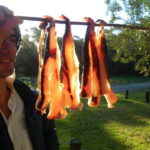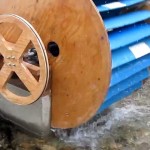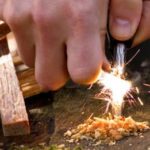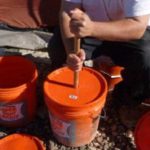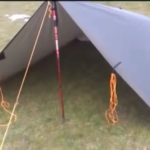
Fear can be both good and bad. It can indicate to us that we are facing danger and need to react. It can also keep us from confronting things that make us uncomfortable. Fear can force us to take a step back and think about something, or it can cause us to freeze up and not think about anything at all. Let’s take a look at some things about fear that relate to survival and how you can make the best use of this complicated emotion.
Fear is an Acquired Taste

Most of the things that we fear are not given to us at birth. We develop fears out of our experiences as well as what we are taught to believe. Fear manifests itself in a number of ways from hesitation to anxiety, avoidance or outright panic. We can also make poor assumptions as well as decisions based on our fears about something. Fear is perceptive, and different people will be afraid of different things to various degrees. All of this tells us is that fear is an emotional response that can be altered and honed.
A big source of fear is our lack of understanding about something as well as how to handle the consequences. Another source of fear is being shocked and pained by something and then developing a strong emotional response to future situations. However, these responses can be irrational and disproportionate, and this can impact how you react during a survival scenario.
Irrational Fears

I went rafting during a summer camp many years ago, and the raft sprung a leak. I paddled my way to the shore and realized that I was on the wrong side of the river. The access road as well as my companions and leaders were on the other side. I started to go back in the water so I could swim across when I noticed a number of leeches on my body. I panicked, didn’t know what to do and froze in fear. I jumped out of the water and sat on a rock along the riverbank for hours as the counselors begged me to swim across and deal with the leeches later.
I was afraid of being poisoned, losing too much blood or dealing with a doctor with a scalpel trying to cut leeches off of my body. All of these fears were unfounded due to my lack of understanding, and my decisions had a frustrating impact on those who I was rafting with. Of course the fear went away after I finally made it to the other side and realized that getting leeched is a pretty painless experience.
However, it took me a long time before I was willing to go back into a river because of the emotional response I had during that incident. I needed to have some further experiences with playing in rivers before good emotions replaced that fight-or-flight response I developed many years earlier.
I also have been wrestling with fears of cockroaches for years. I don’t know where it came from exactly, but I had to live in a place where they were a normal part of life before I was able to accept that and move on. Now I don’t like them, but I won’t freeze in fear when I see one in someone’s house because I learned how to develop a different response.
I had to work at overcoming these fears, and I was fortunate enough that they weren’t debilitating or of a nature that could jeopardize health and safety. The point that I’m trying to make is that irrational fears can be overcome with some practice and head-on confrontation.
The Benefits of Good Fear

Other fears are good and necessary because they can keep us from harm. I had a tremendous fear of tornadoes when I was a kid. However, this fear helped me to better understand them, know what to do when they strike and how to prepare for the aftermath. Fear led me to have a better respect for their power and destructive capability in order to protect myself. This type of fear is good because my focus shifted from fearing the tornado itself to developing an appropriate response.
Developing an appropriate response to fear is the key, and this only comes from knowledge, planning and experience. Look at how most people fear electrocution, drowning, getting burned or falling down. We know that it’s important to avoid live wires or to not sit under a tree during a thunderstorm. We know that it’s not a good idea to grab a hot pan out of the oven with our bare hands. This comes from our understanding that doing certain things will lead to injury or even death. Our responses are generally automatic and proportional to the situation.
Knowing when to use fear as a survival tool is important, and this skill tends to come with practice. The trick is to discern between good fear and emotions that can lead you to make bad decisions in a crisis. Dealing with them now will help to reduce the chances of hesitating, freezing up or making bad decisions during a crisis. Take the time to really think about your fears, their causes as well as how to overcome them. You will amazed at how easy it is to turn fear from a barrier into an advantage.






